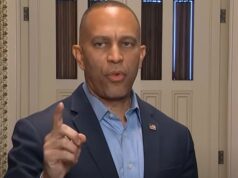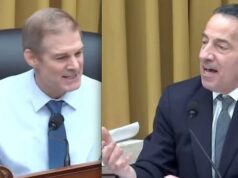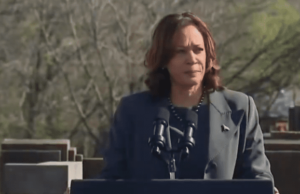This story originally was published by Real Clear Wire
By Gary Lawkowski & Curtis Schube
Real Clear Wire
Anyone who lived through 2020 observed that some messages received treatment online that stood in stark contrast to other messages. Conservative voices and messages were censored and banned, while progressive voices and messages flowed freely. If a person spoke against COVID-19 lockdowns—and later vaccines—there was a good chance that a social media platform would take down the post. If one were to suggest that suspicious activities occurred surrounding the 2020 election, the label “misinformation” might appear.
The primary vehicle to censor internet speech is to label disfavored messages as dis-, mis-, or mal-information. While the category of malinformation is seemingly the most offensive – true information that government censors believe lacks sufficient “context” – the other categories can be just as malignant. Mis- and disinformation require someone to determine what is true and what is not.
As the facts have unfolded, the source of this phenomenon was something more sinister than company policy or leftwing tech employees. Our government was involved in censoring its own citizens. After Elon Musk’s historic takeover of Twitter, he released documents that proved that conversations took place between company personnel and federal officials that resulted in a coordinated effort to ban, de-amplify, or censor Twitter accounts. Evidence exists that other social media and internet companies had similar coordination with government officials.
While we believe the vast majority of government officials are dedicated, hard-working people who want to do the right thing, they can still make mistakes and get it wrong. Whether out of a well-meaning but misguided belief or self-interested desire to hide inconvenient or embarrassing narratives, government officials can be—and often are—wrong about things. This is particularly true when what is being censored is an interpretation or narrative, rather than a verifiable fact.
Clearly, the governmental practice of coordinating with internet companies has become a systemic problem, while also something that officials feel emboldened to do. This should concern all Americans, regardless of whether they agree with any particular message that is being suppressed. After all, if government can censor your neighbor today, it can censor you tomorrow. So, what can be done?
There are some simple solutions to address these basic problems. The first is that Congress, the courts, or both, should prohibit the government from having a seat at the content table. The First Amendment reflects a commitment to the values of free expression that prohibits the government from being an arbiter of speech. That principle should be applied to the internet.
To do this, defined lines should be drawn to prevent the blurring of government and private actors. Censorship has thrived under the guise of being the actions of private companies, who are in fact third-party intermediaries. The government has pointed the finger at private companies and claimed that the censorship was not done by government, when in fact a government official picked up the phone or sent an email informally urging the action. As documents from watchdogs and lawsuits have shown, this relationship was often either collusion or coercion. New policy must clearly define who can and cannot evaluate internet content and for what reasons. Law enforcement may have limited legitimate purposes such as identifying child pornography, for example, that other officials like the Secretary of Transportation would not.
Some censorship is done under the guise of preventing “foreign” interference. But in the world of the internet, it is nearly impossible to decipher what messaging is “foreign” and what is an American citizen expressing constitutionally-protected speech. Rather than suppress the perceived dis or even malinformation, government institutions should persuade with their own information that can be evaluated and considered by all.
Another tactic to justify censorship is to redefine the authority granted to federal agencies. For example, the Cybersecurity and Infrastructure Security Agency, a Department of Homeland Security subagency, has expanded the definition of “critical infrastructure” beyond the traditional and acceptable meaning and has hinted at wanting to go as far as to regulate America’s “cognitive infrastructure.” The power given by Congress to the Department to oversee the safety of dams, power plants, etc., should not be transformed (by executive fiat nonetheless) to empower bureaucrats to police ideas and anecdotes. The stretching of definitions must be addressed by Congress.
Government also funds private companies who perform censorship activities. The Global Disinformation Index, for example, was awarded grant money from the State Department’s Global Engagement Center. Put simply, this activity is inconsistent with the values underpinning the First Amendment and must be prevented from happening.
Finally, these policy changes need teeth. Government officials who are found to continue to coordinate with internet companies to suppress speech must face consequences in the form of firing, civil liability, or even criminal liability.
As with any innovations in history, over time, bad actors learn to abuse the newly found powers to their advantage. With the internet, it took a decade or two for censorship to develop. But now that the problem exists, it is time to dismantle the censorship regime before it becomes too late. Simple and common-sense reforms, consistent with what is described above, would go a long way toward stopping the modern censorship industrial complex from becoming business as usual.
Gary Lawkowski is a lawyer with the Dhillon Law Group, where he advises and represents clients on legal issues including matters concerning the Freedom of Information Act. He previously served in government as Counselor to the Secretary of the Interior, Senior Advisor to the Domestic Policy Council, and Counsel to three Commissioners on the Federal Election Commission.
Curtis Schube is the Executive Director for Council to Modernize Governance, a think tank committed to making the administration of government more efficient, representative, and restrained.
This article was originally published by RealClearPolicy and made available via RealClearWire.











